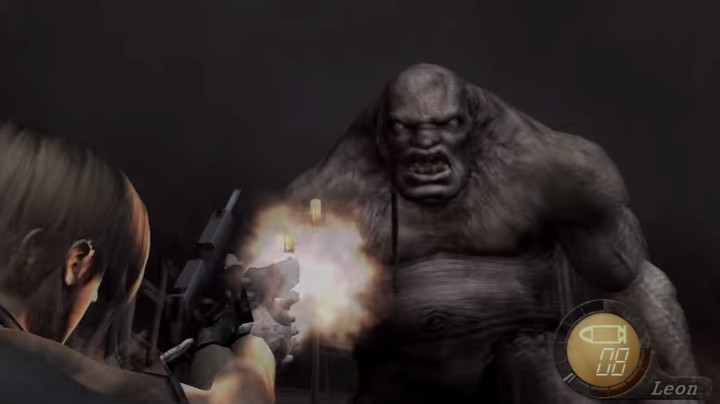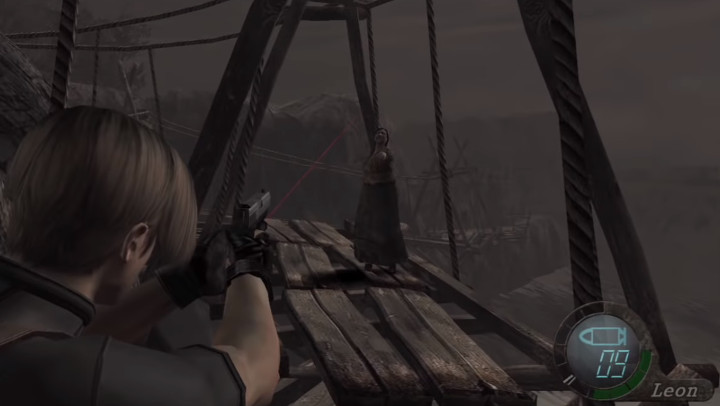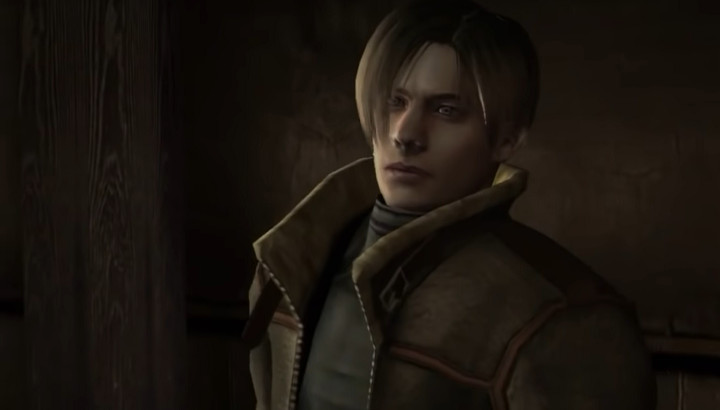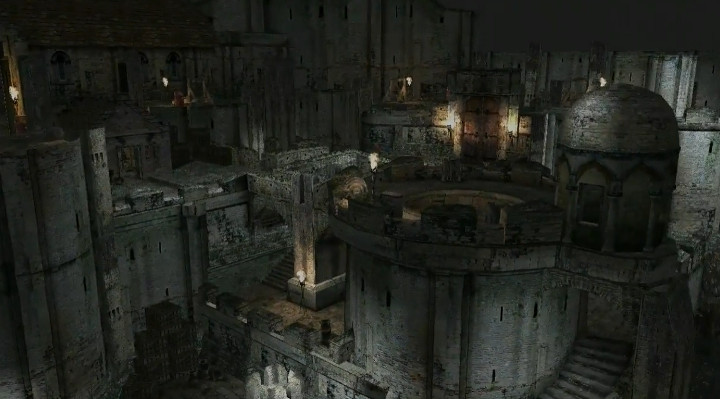How Resident Evil 4 Revamped the Classic Resident Evil Series

(Bloop sound) GameCube.
The Cradle of the Progenitor Virus. Leon S. Kennedy… Invading… Contamination… Possessed…
The camera zooms out, and the game title appears: BIOHAZARD 4.
This vague assortment of words (and the equally bewildering imagery that accompanies it) makes up the first-ever teaser trailer for Resident Evil 4, which is posted below.
In 2002, when this trailer was revealed, the game was announced as GameCube exclusive. As a fan of the Resident Evil series, and of protagonist Leon Kennedy in particular, I was disappointed that I would not be able to play the game, since I did not own any game consoles and did all of my gaming on PC. Nevertheless, I had no choice but to watch the Resident Evil 4 trailer over and over again, imagining what it might be like to actually get to play it.
I used to have a dedicated games folder on my computer that housed trailers and screenshots of action-adventure and sports games. I used to collect those files from the respective games’ official websites and other media sources. I collected more images and trailers for Resident Evil 4 as the years went by and the development of the game went through several drastic changes.
In fact, Resident Evil 4 began development in 1999, and there were at least three versions that were scrapped before the final version was created. In the meantime, a lesser-known entry in the series, Resident Evil Zero, was released in 2002 for the GameCube.
By 2005, Resident Evil 4 was no longer slated to be a GameCube exclusive, but I still could not play it until 2007, when it was finally ported to PC (where it was published by Ubisoft). But finally I had my chance, and I could tell right away that this game was different.

Developed and produced by Capcom, Resident Evil 4 takes place six years after the events of Resident Evil 2. In Resident Evil 2, Leon S. Kennedy found himself trapped in an unpredictable situation in Raccoon City on the first day of his job as a cop; this time, it is a different story. Leon is now a secret agent for a mysterious United States organization. He’s sent to a mysterious village in Europe to rescue the President’s daughter, Ashley Graham, from a local cult. While Leon is always well-prepared, he did not know what he would face in this village.
The main villain of this story is Lord Osmund Saddler, who is the leader of the religious cult Los Illuminados. When I saw Saddler for the first time, it was hate at first sight. I looked at the screen and said, “My heart tells me that you will be the victim of a rocket launcher by the end of this game.”
The residents of this Spanish village are no longer ordinary human beings; they’re similar to what Leon encountered in Raccoon City, plagued with some evil virus. However, these villagers are far sharper than those we faced in Raccoon City.
These villagers were once rational human beings, but to their misery, they were infected by a mind-controlling parasite known as Las Plagas. They are intelligent, communicate with each other, and make plans to trap their victims. This sharpness adds challenge to the gameplay, a far step beyond the shambling undead of the previous games. As a player, you have to strategize how to react when these villagers attack you like a pack of wolves.
As an additional twist, Leon isn’t aware that Albert Wesker also has a hand in this story, as he has sent Ada Wong on a mission to retrieve a sample of the Las Plagas virus. Ada Wong, if you remember, has some history with Leon from Resident Evil 2, and it’s suggested that both have a romantic interest in each other. However, their true relationship level has always been a thing of mystery.

Resident Evil 4 is more action-oriented than its classic survival-horror predecessors. Leon is far more acrobatic, and he can even shoot while walking now. The camera angle is much closer to the character, making the third-person combat a lot more comfortable and practical. Personally, I found this to be a refreshing change, and Capcom executed it in a way that gives the player a balanced approach to combat rather than the disempowering feel of previous games.
Overall, gameplay is fast, smooth, and action-packed. Leon can now smash doors to open them rather than opening them via a tedious cutscene. He can kick enemies off ladders, jump through windows, and perform swift finishing moves on enemies. If you shoot an enemy in the head, it is blinded, so Leon can move closer and perform a finishing move (which you activate by pressing the action button).
Resident Evil 4 also introduces quick time events (QTEs) to the series. These could be a lot of fun, especially during fighting sequences, requiring sharp reflexes and quick fingers. When done well, QTEs can give you a surge of adrenaline that connects you with the character you are playing as. Leon’s battle with Krauser (shown in the video below) is a perfect example.
Despite these changes, Capcom took care to ensure the overall theme would be a logical progression from the earlier games rather than a huge departure. This is indeed a different world than Raccoon City, but the narrative, environments, characters, and enemies still contain much of the essence of the Resident Evil series. This still feels like a Resident Evil game.
Resident Evil 4 maintains some of the classic staples of the series, such as the inventory system and the typewriter game saves (you save the game using typewriters you’ll find scattered across the game world). The inventory has a new twist though: You can now find a merchant who sells and exchanges items for you.
Resident Evil 4 also has much higher-quality voice acting than previous games (a far cry from the original game’s famously bad voice overs). Voice acting plays a massive role in the game’s level of immersion, and it creates a relationship between the player and the characters. Resident Evil 4 does this quite well.
For its time, the game looked great too, featuring high-quality cutscenes and incredibly well-designed environments.

I think it’s safe to say that Resident Evil 4 took giant steps forward in almost every aspect of the game. It was a critical and commercial success, and it won many awards. In fact, it was called 2005’s game of the year by Nintendo Power and Game Informer, as well as by the Spike Video Game Awards.
In a nutshell, Resident Evil 4 revamped the series due to its beautiful graphics, action-packed gameplay, high-quality voice acting, and fantastic narrative. The main Resident Evil series had three similar games in a row (four if you count Resident Evil Zero), but Resident Evil 4 came as a refreshing change of pace exactly when the series needed it most.
Between the time I saw the first Resident Evil 4 trailer and the game’s eventual PC release, five years had passed. I had a feeling that Resident Evil 5 (which wouldn’t release until 2009) would feature Chris Redfield rather than Leon Kennedy (and I was right), but I still wanted more from the series. I had to decide if I should upgrade my PC and wait for the eventual PC port, or maybe finally just buy a console.
This, of course, is a tale for another time.

I used to collect those files from the respective games’ official websites and other media sources.